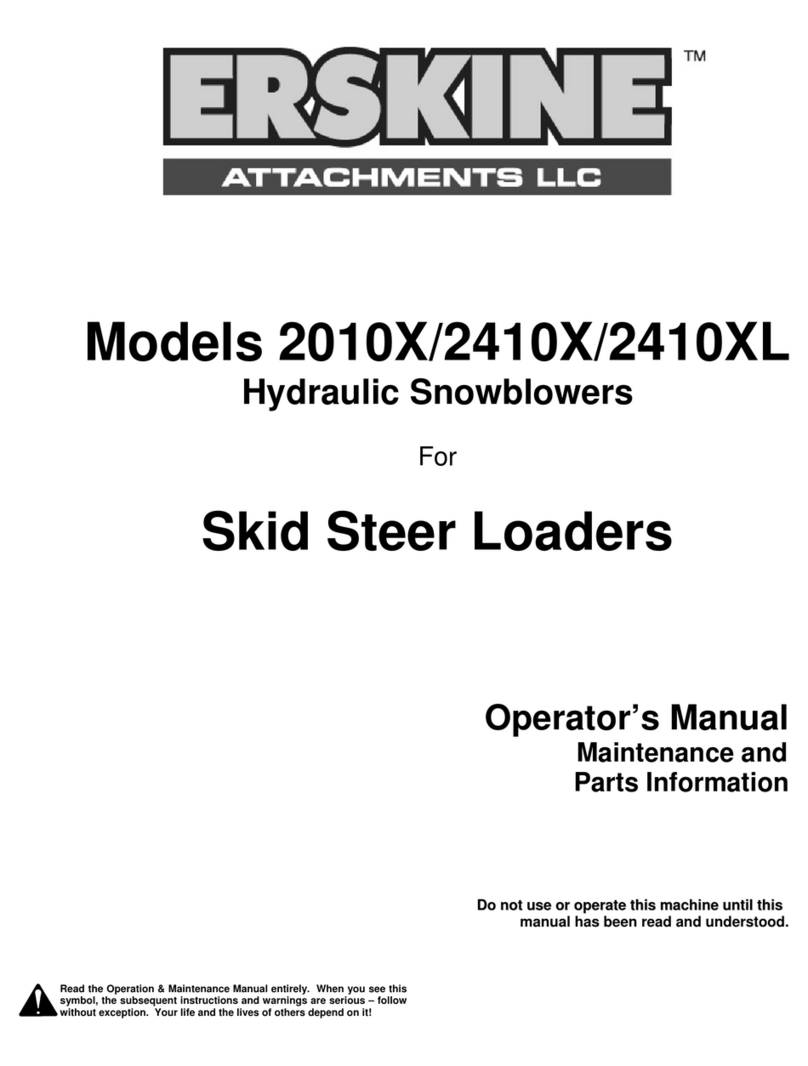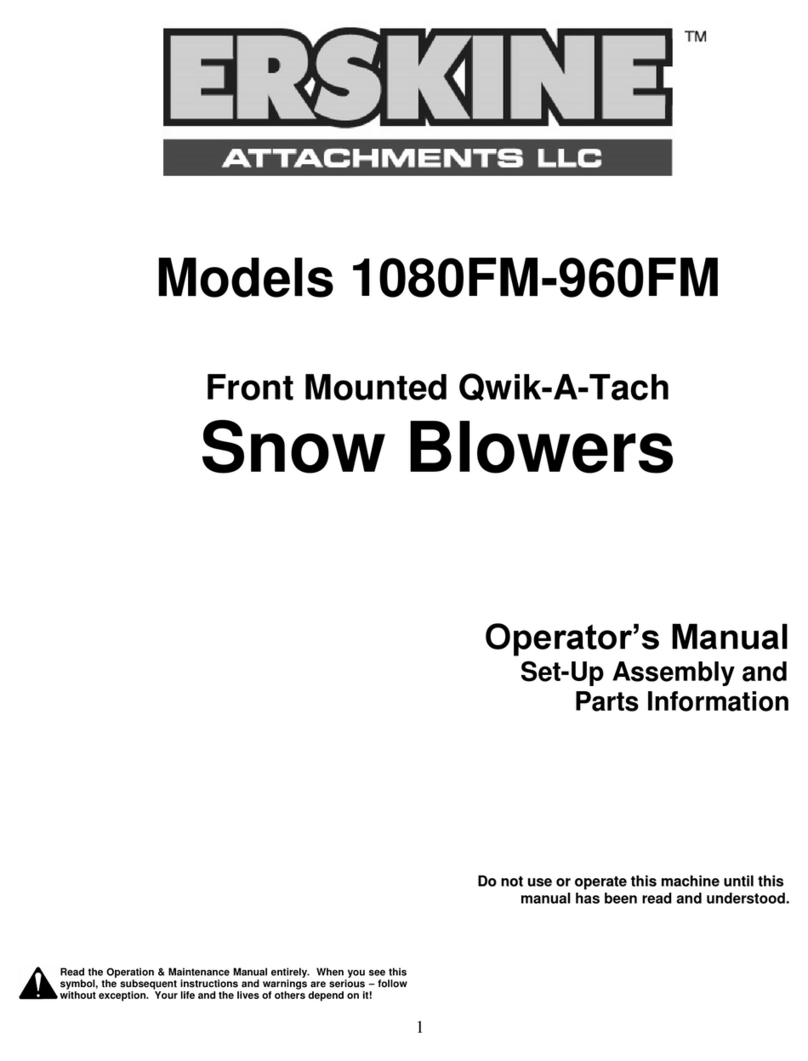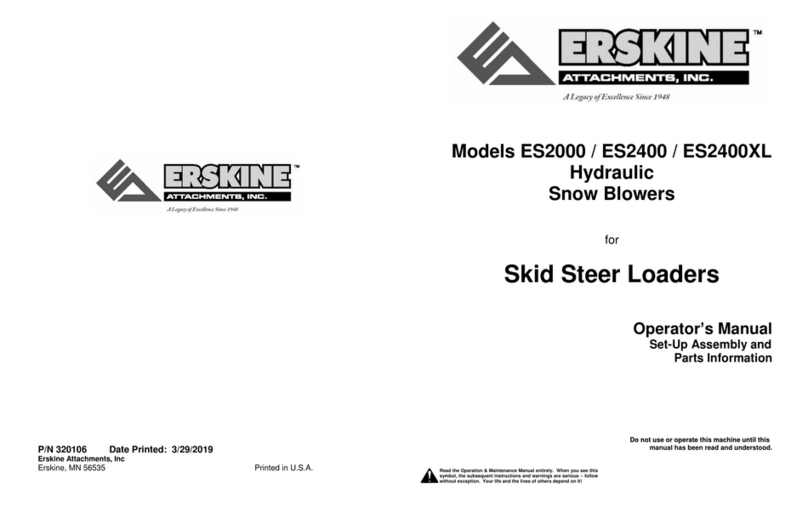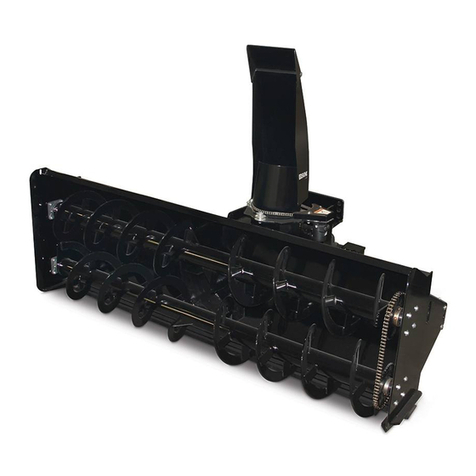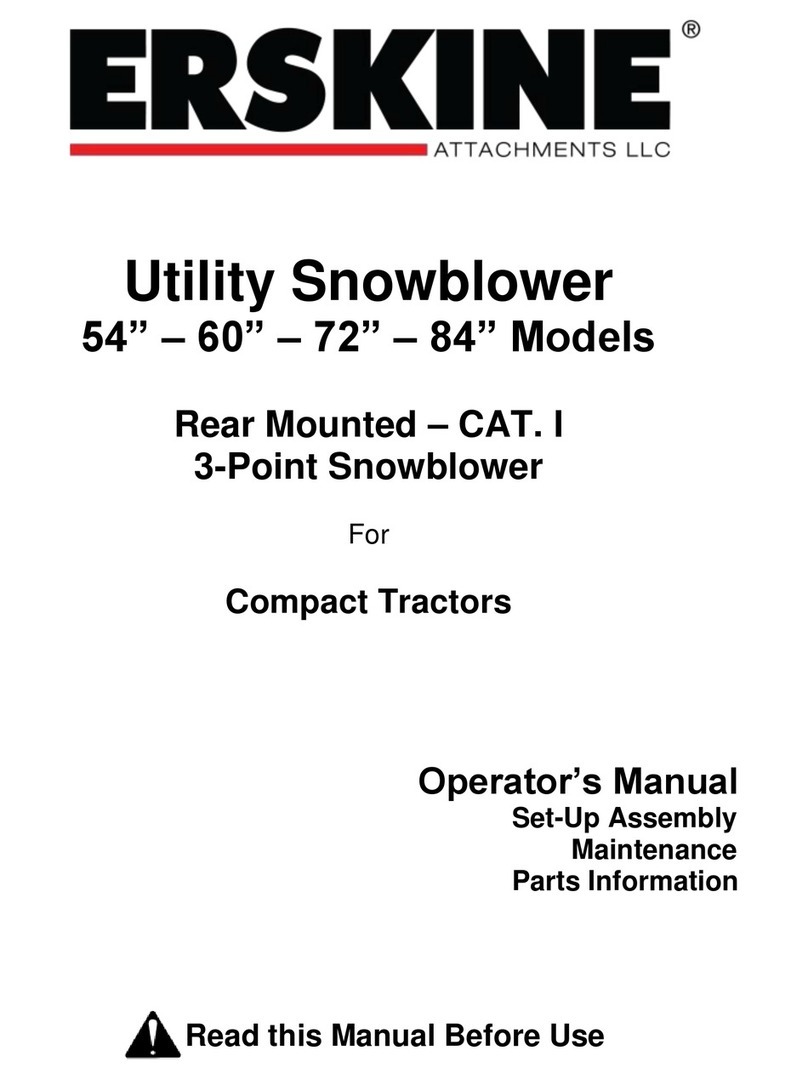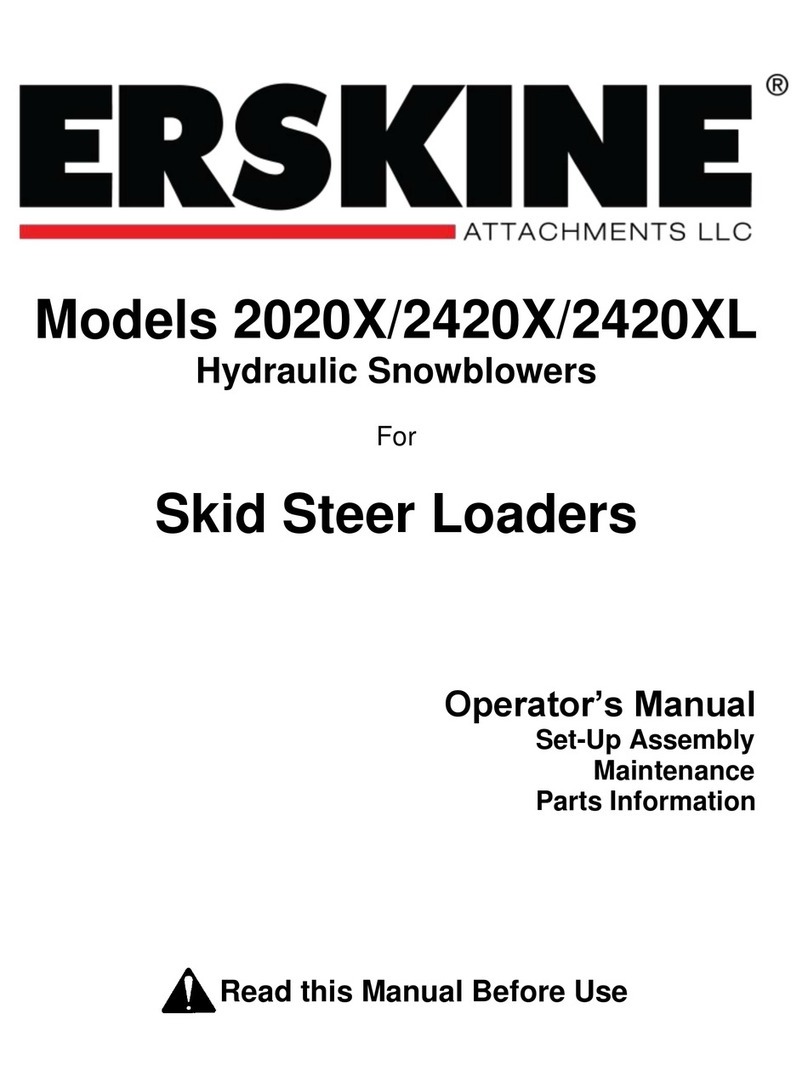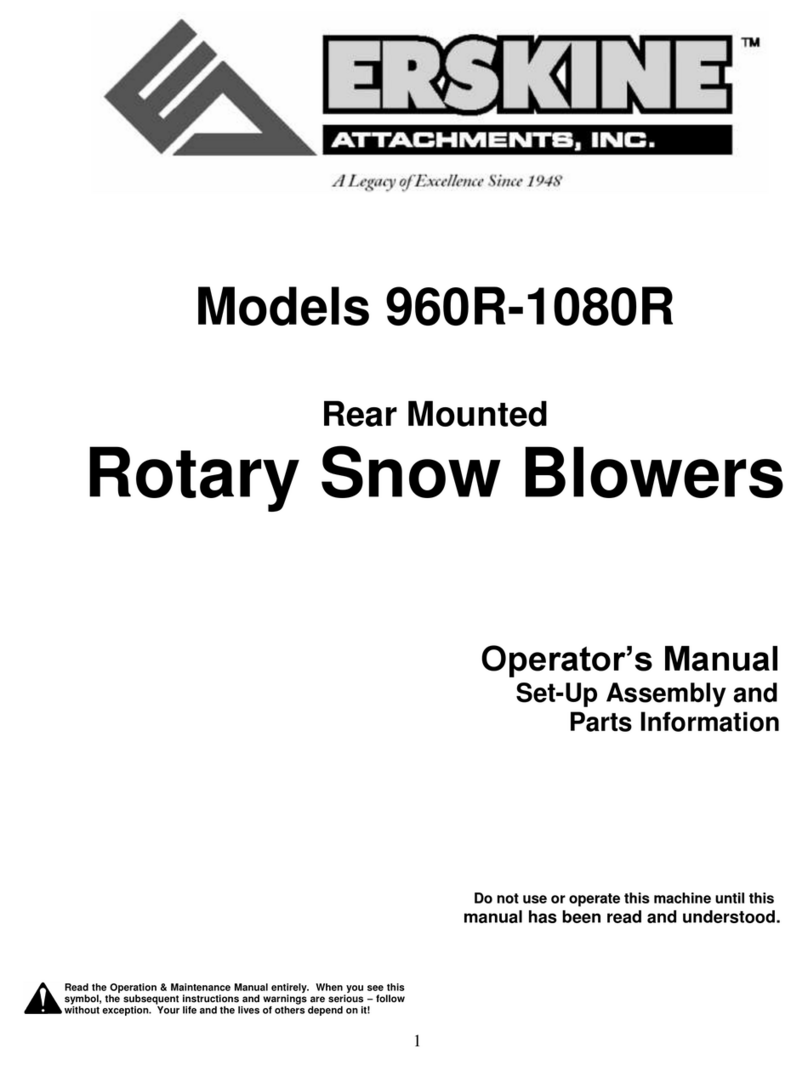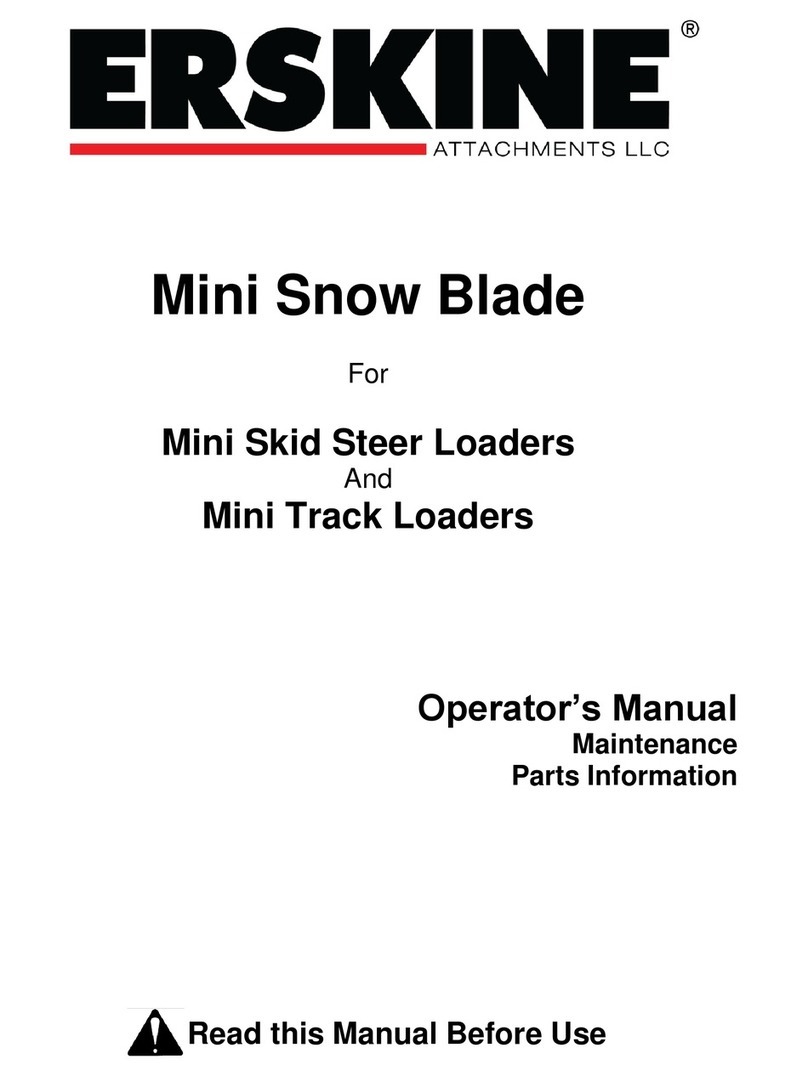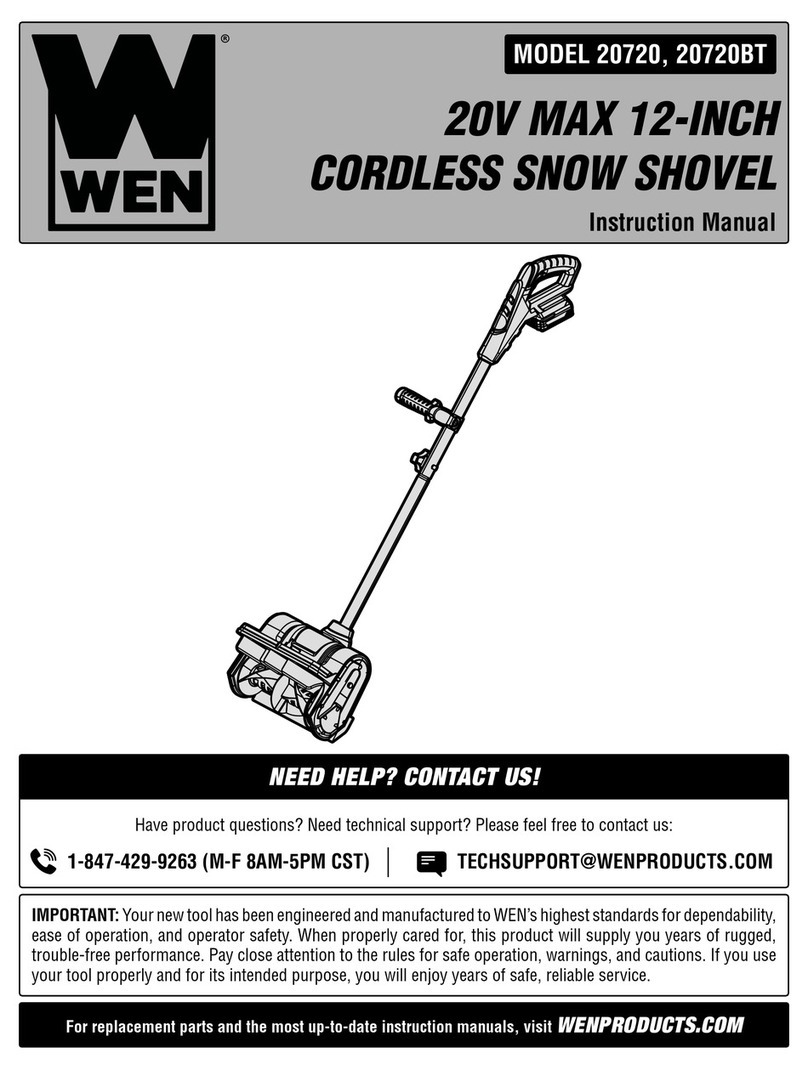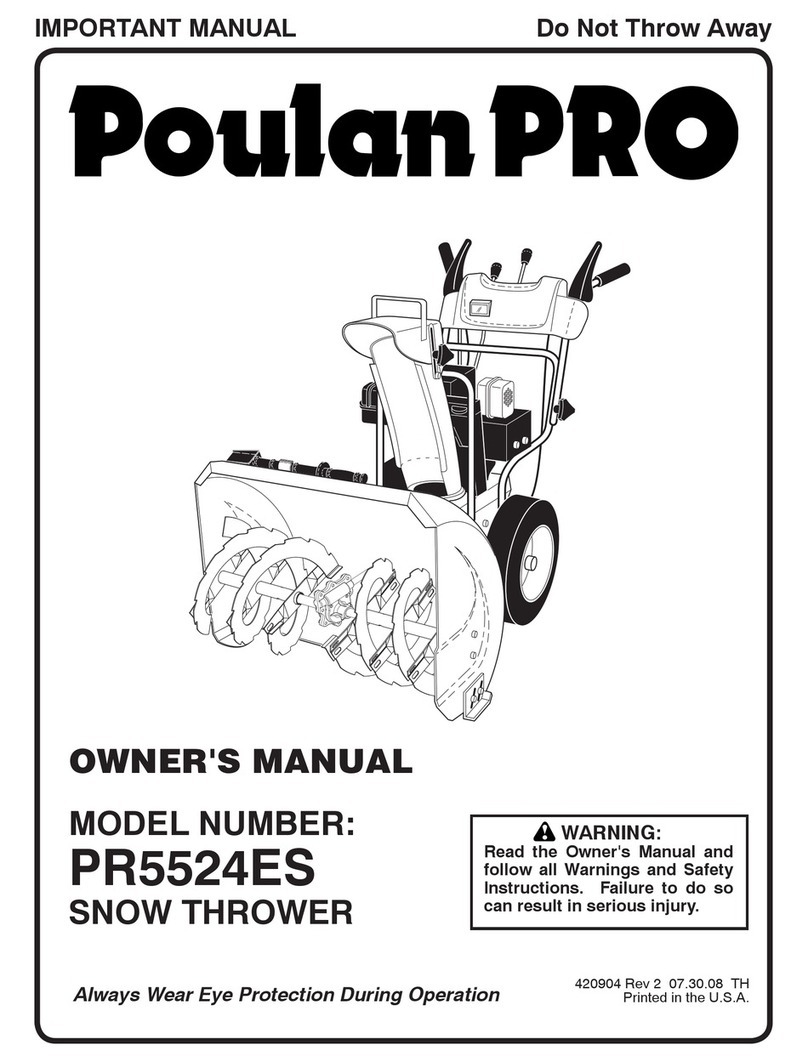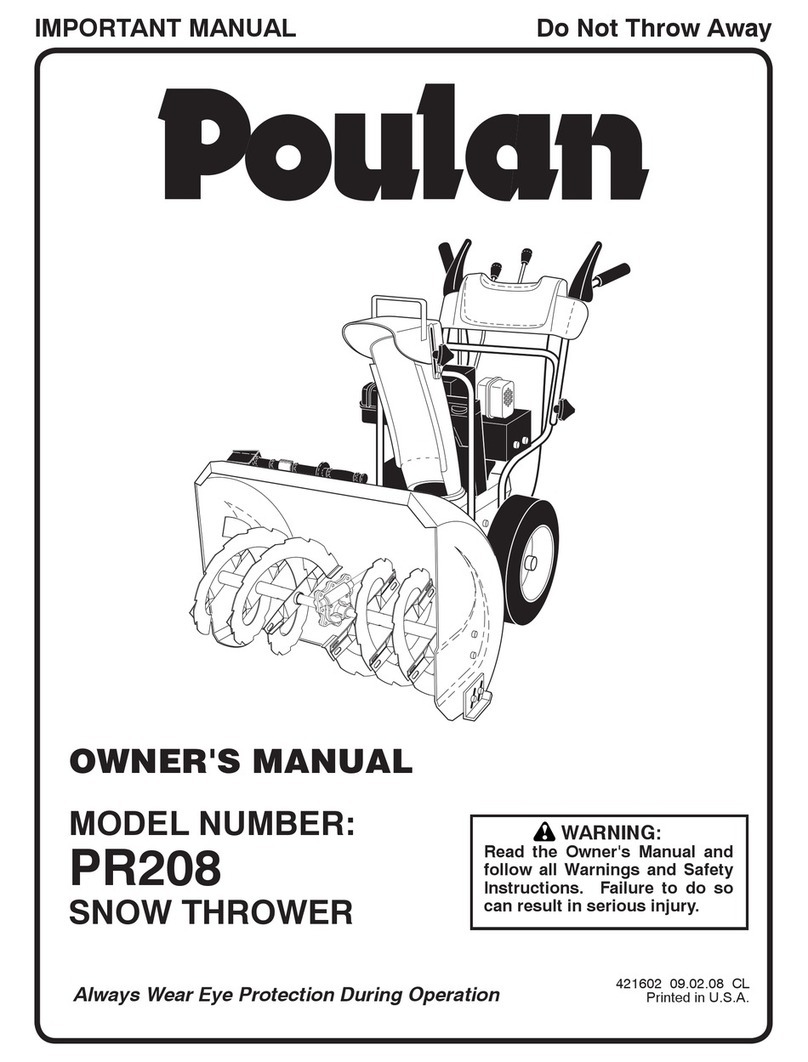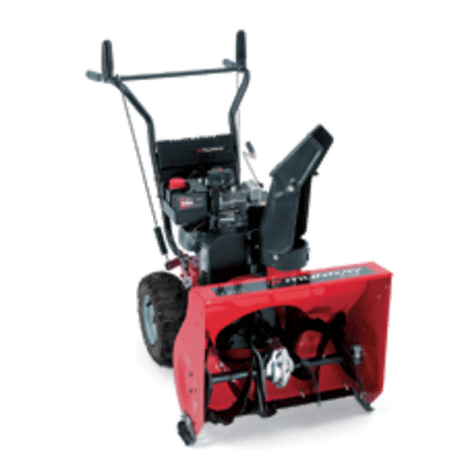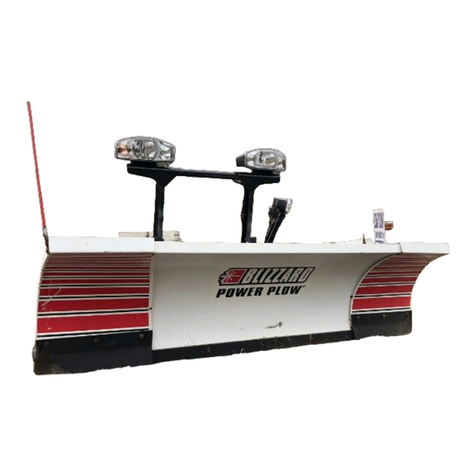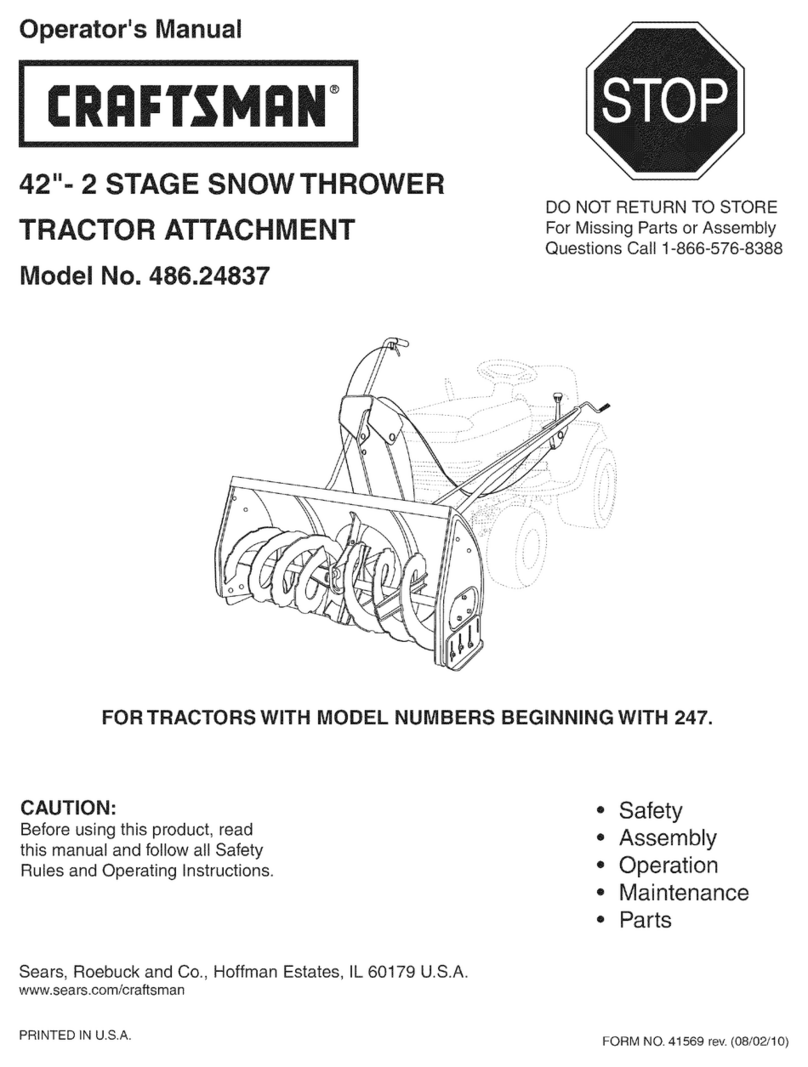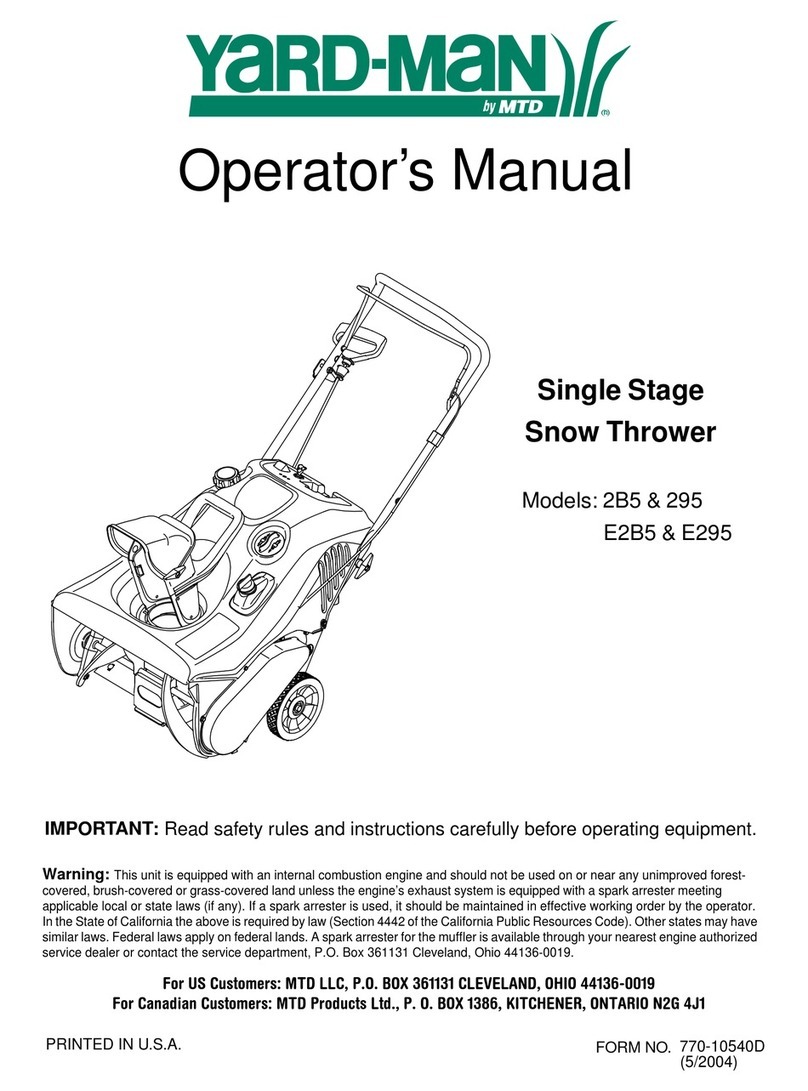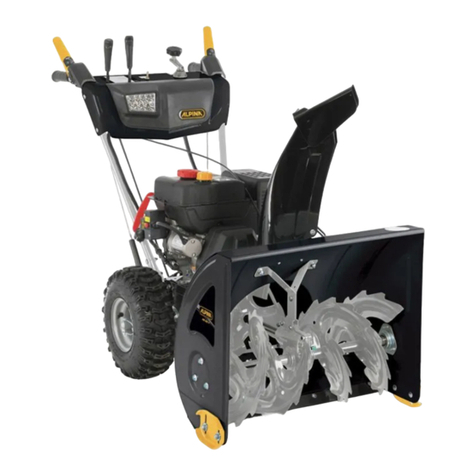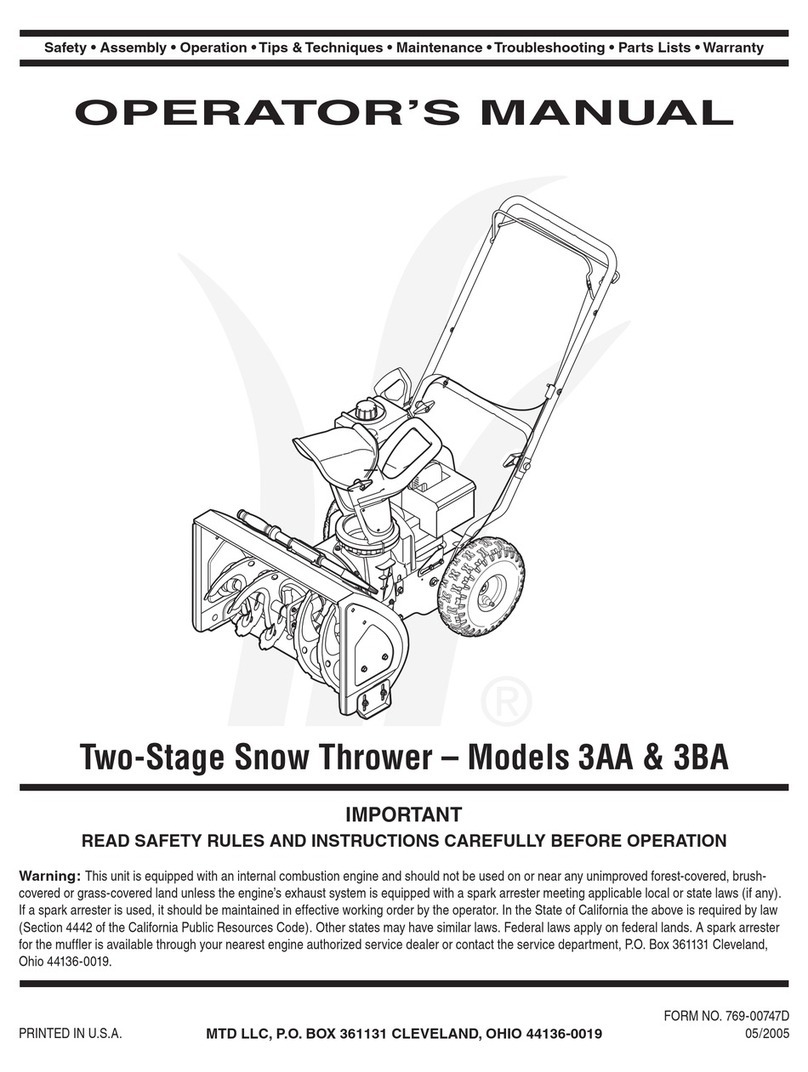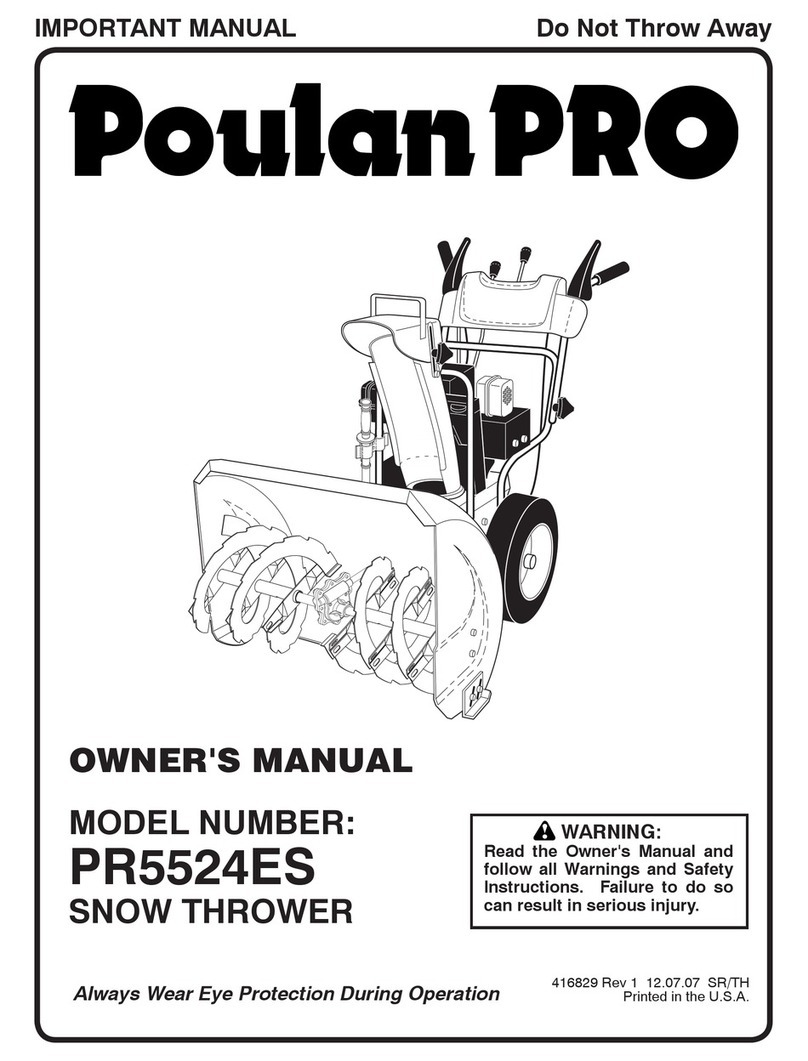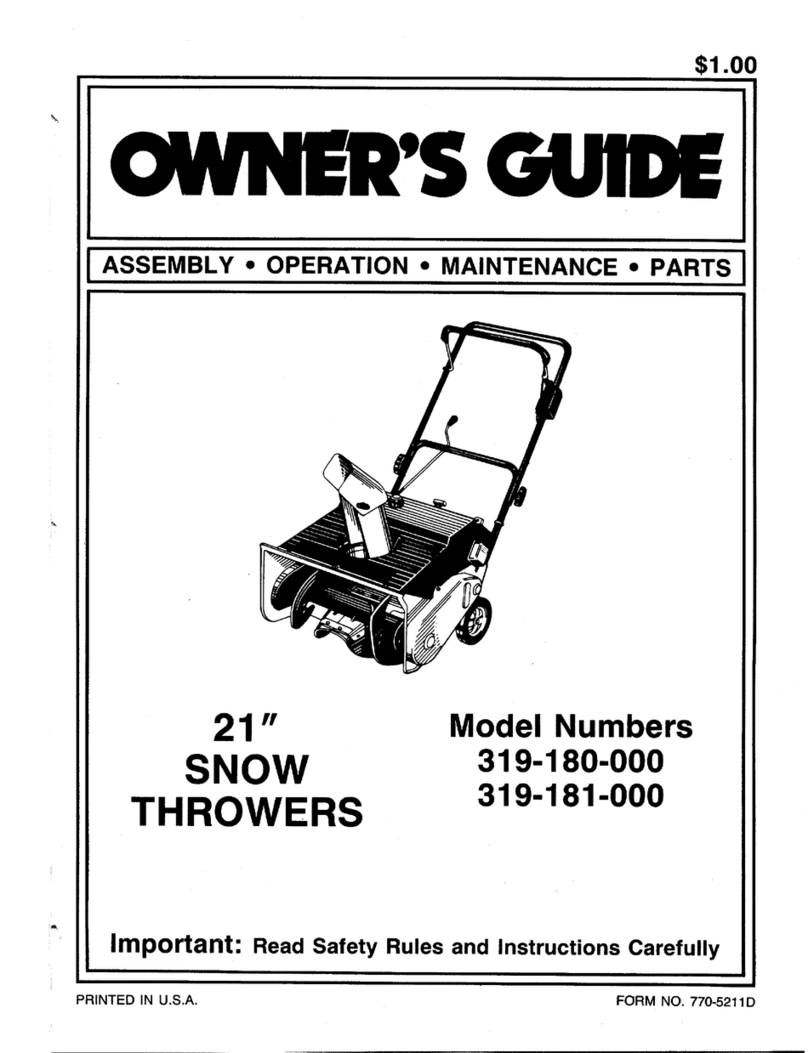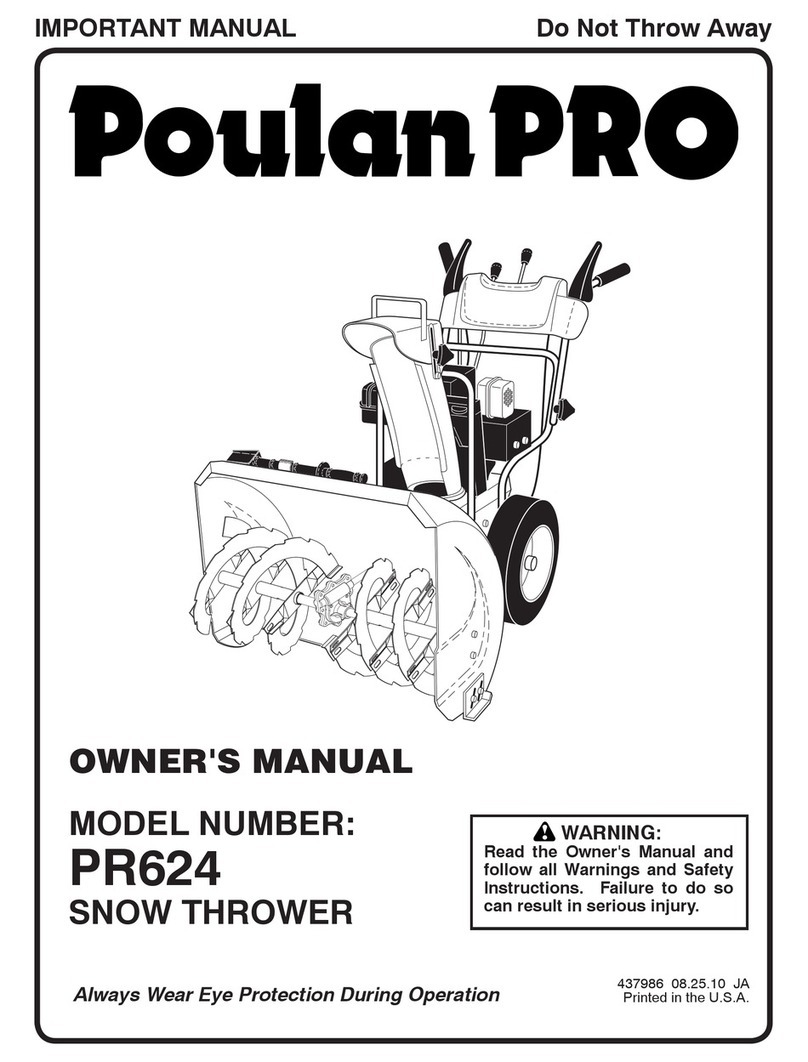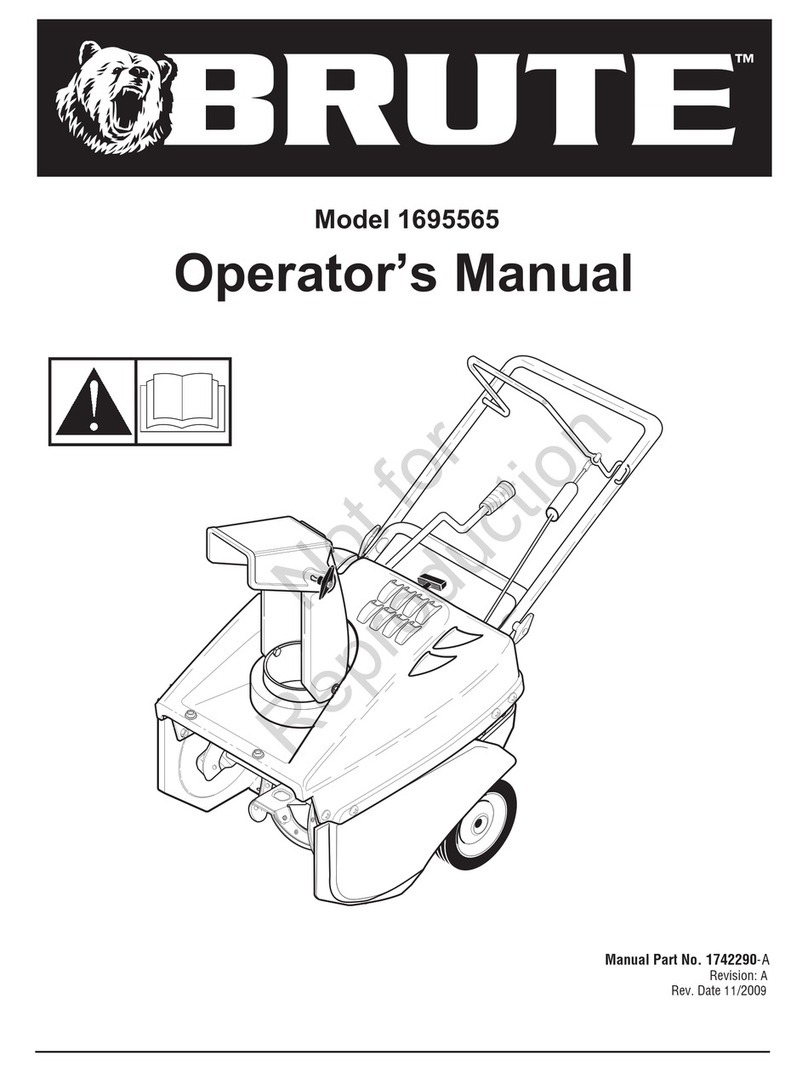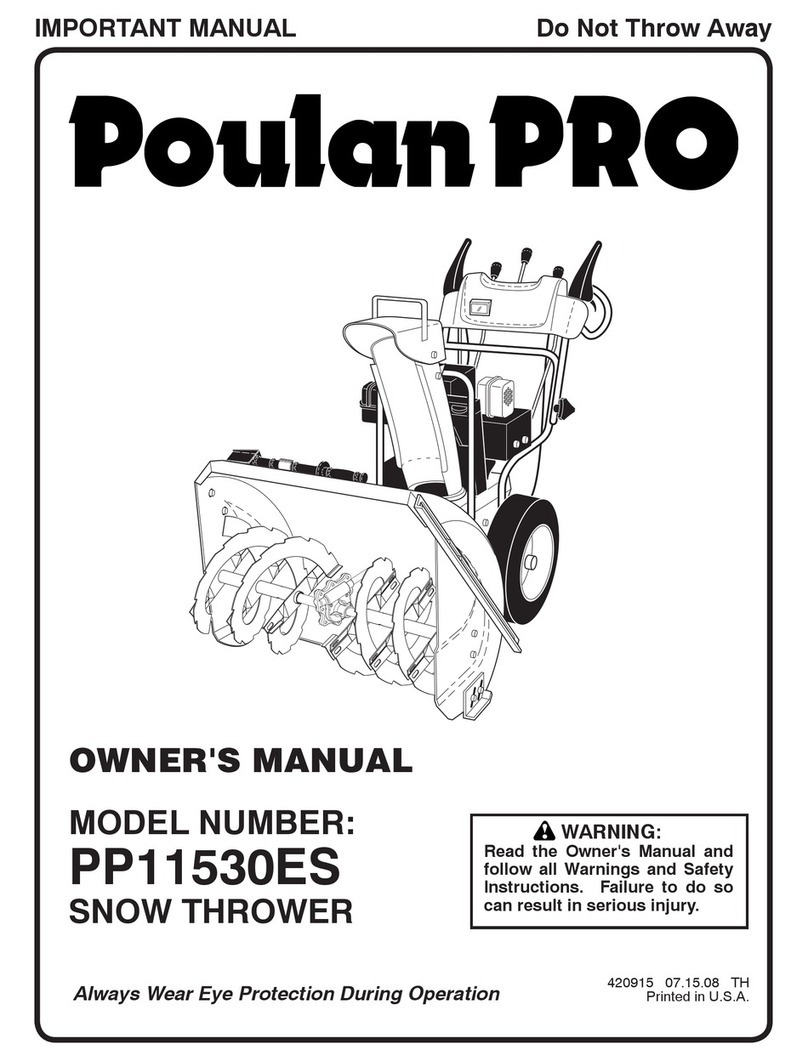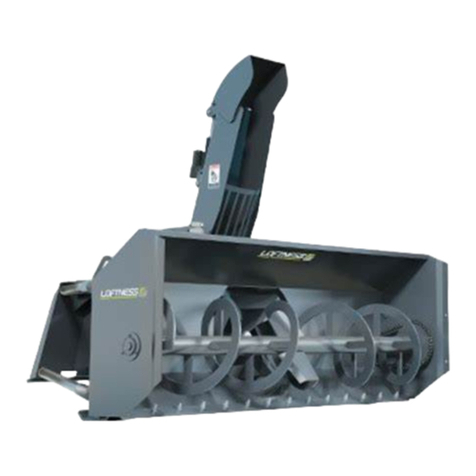Improper operation can cause serious
injury or death.
Pre-operation
•This attachment is designed for blowing snow only.
NEVER use this attachment for any other purpose.
•Read the operator’s manual for the “Compact
Tractor”. NEVER allow untrained people to
operate.
•Operating instructions must be given to everyone
before operating this attachment and at least once
a year thereafter in accordance with OSHA
regulations.
•NEVER exceed the maximum recommended input
power or speed specifications for the attachment.
Over-powering or over-speeding the attachment
may cause personal injury and/or machine
damage.
•Keep all shields, guards, and covers in place.
•Do not modify equipment or add attachments that
are not approved by Erskine Attachments LLC.
•Use adequate safety warning lights anddevices as
required by local regulations. Obey all local laws
and regulations regarding machine operation on
public property.
Operation
•Avoid loose fittingclothing. Clothing or hair caught
in moving parts may leadto serious injury ordeath.
•Hydraulic connections may be hot after use. Use
gloves if connecting or disconnecting after use.
•To protect the operator from hearing loss, ear
protection is required unless the tractor is
equipped with a noise reduction cab that meets
OSHA 1910.95 standard.
•Always wear eye protection that meets z87.1 or
use with an enclosure that provides similar
protection.
•Check and be sure all operating controls are in
neutral before starting the engine.
Operation (continued)
•Keep people away from the tractor, attachment,
and discharge when in use. This attachment
sends objects flying and has rotating parts.
NEVER direct discharge toward people –rocks
and debris can be thrown.
•NEVER operate near embankments or terrain that
is so steep that rollover could occur.
•Always stay in the operator position when using
the attachment.
•Before leaving the operator’s position, disengage
PTO drive, lower the snowblower to rest flat on the
ground, stop engine, set park brake, and wait for
all motion to stop.
•NEVER place hands in the discharge chute or
clear debris while the engine is running.
Avoid High Pressure Fluids Hazard
•Escaping fluid under pressure can
penetrate the skin causing serious
injury.
•Avoid the hazard by relieving the
pressure before disconnecting
hydraulic lines.
•Use a piece of paper or cardboard, NOT BODY
PARTS, to check for suspected leaks. Wear
protective gloves and safety glasses or goggles
when servicing or performing maintenance on
hydraulic systems.
•If an accident occurs, see a doctor immediately.
Any fluid injected into the skin must be surgically
removed within a few hours or gangrene may
result.
Maintenance
•NEVER make adjustments, lubricate, clean, or
perform any service on the machine while it is in
operation.
•Make sure the attachment is serviced on a daily
basis. Improper maintenance can cause serious
injury or death in addition to damage to the
attachment and/or your equipment.
